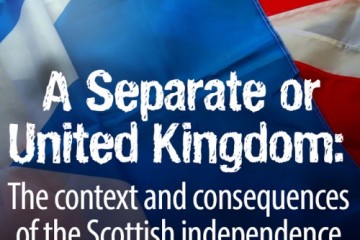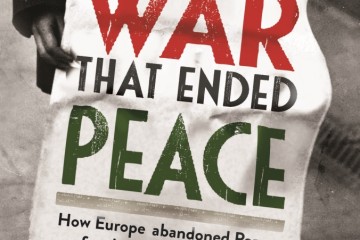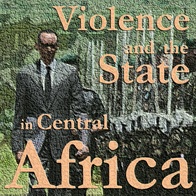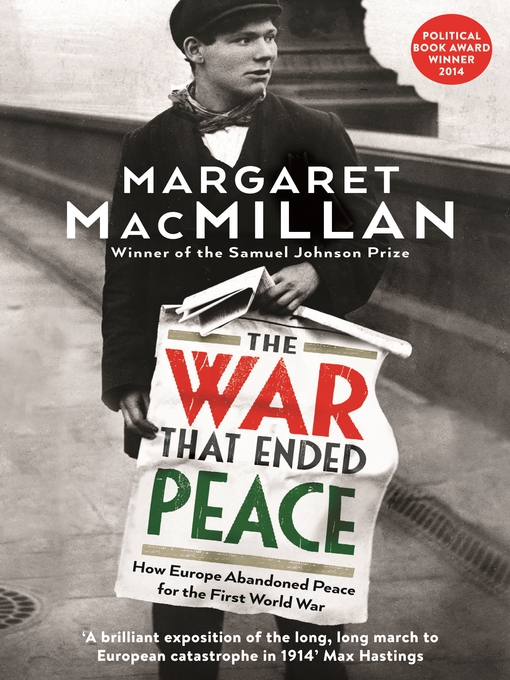
Scotland: Diaspora and Independence
Much of the discussion around the relevance of migration and migrants to the Scottish independence debate revolves around the effects of independence on current immigration policies in Scotland and the rest of the UK. But in the last two centuries, Scotland’s population change has been characterised more by emigration than by immigration.
Clear data on the actual size of the Scottish diaspora are hard to come by and are critically dependent on how one chooses to define ‘Scottish diaspora’. The number of people born in Scotland and living outside the UK, for example, is estimated at about 200,000, while about 850,000 Scottish-born people are believed to live elsewhere in the UK (Shaw 2013). These relatively modest numbers are dwarfed, though, by estimates of the size of the ‘Scottish diaspora’ using looser interpretations of the term that include those with more distant Scottish ancestry, in particular those who still consider themselves to be, in some way, Scottish. When these more distant ‘Scots’ are included, estimates of the size of the diaspora increase to more than 30 million (Sim 2011) – with some suggesting the number could be as high as 100 million. Clearly, larger numbers relate to those whose sense of Scottishness is based on more distant heritage – potentially going back several generations – or even less tangible relationships with Scotland.

Scottish Independence and the Union Jack
There are a number of important arguments for why Scotland should remain part of the United Kingdom: the need to avoid further economic turbulence in already troubled times; the benefits of being a relatively large country with far-reaching international influence; and the long history and common values that we share with the Scots. But perhaps most important of all is what I shall call the Union Jack argument: the prospect that we might have to relinquish what is, by any objective standard, the best national flag in the world.
For readers unfortunate enough not to be familiar with the Union Jack, it comprises three main elements: a red St George’s cross overlain on a white background, which represents the nation of England (and Wales); a white St Andrew’s cross overlain on blue background, which represents the nation of Scotland; and a red St Patrick’s cross overlain on a white background, which represents the nation of Northern Ireland. The flag first took its present form on the 1st of January 1801 when the Kingdom of Ireland and the Kingdom of Great Britain were brought together under the Acts of Union 1800.

Margaret MacMillan “The War that Ended Peace”
This month, which sees the centenary anniversary of the outbreak of World War I, is a time of reflection and remembrance for Europe. It is therefore an appropriate time for Politics in Spires to review Professor MacMillan’s recent book on this origins of the First World War, The War that Ended Peace. Below is an interview with Margaret Macmillan and a review by her interviewer, Katharine Brooks. The War that Ended Peace can truly be termed a masterful work of scholarship, detailing the origins of the war in both outstanding breadth and depth. The book does not tell a new story of the origins of World War I, but it does tell a more intimate one. Macmillan manages to synthesise a consideration of the …

Scotland and the European Union: A legal analysis
Should Scots vote for independence, this will be the first case of secession from an EU member state. There is no precedent which would suggest whether or not an independent Scotland would (automatically) become an EU member state and whether Scots would retain rights stemming from EU citizenship. Analogies have been attempted with Algeria and Greenland, but they crucially differ from Scotland in law and fact. Algeria was effectively a French colony, although formally a Department, and its independence was a matter of decolonisation. This is not the case in Scotland. Greenland remained under Denmark’s authority, but exited what was then the European Economic Community (EEC). Scotland is seeking to do the opposite – leave an EU member state and remain in the EU.
The EU is based on international treaties. When new states emerge, some treaties indeed continue to apply in the territory of the new state, if the predecessor state was a party to them. The treaties regulating human rights and humanitarian matters are particularly known to operate in this way. However, there is no such automaticity where treaties that establish international organisations are concerned. Strictly speaking, the EU is not an international organisation, but such an analogy can be established for our purposes here. The UN Charter is also a treaty and an independent Scotland would not accede to it automatically, either. It would need to apply and become a member anew. The same would happen with its EU membership. By becoming independent, Scotland prima facie also exits the EU. However, there is a structural problem in EU law about such an exit.

Iain McLean and Jim Gallagher on Scottish independence
Prof Jim Gallagher and Prof Iain McLean, co-authors of Scotland’s Choices, answer questions about the Scottish independence referendum. They give their views on many of the issues at stake, including citizenship, currency, higher education, and the European Union. Asked to consider a ‘yes’ victory, they explain the complexities of independence negotiations between the Scottish and UK governments.

Violence and the State in Central Africa
This blog takes as its focus the complex and unusual dynamics of violence in Central Africa. Although sometimes unfairly written off as a region of intractable conflict, kleptocratic big men, and hopelessly poor levels of governance, many regional experts now argue that Central Africa is undergoing a period of profound transition. Are the ‘Illiberal Statebuilders’ of Paul Kagame and Yoweri Museveni heralds of a new period of robust and durable state formation? Or merely the newest generation of patrimonial caretakers for states in terminal decline? Is the defeat of the M23 mutiny in Eastern Congo the last rebellion, or just the latest? And how has their defeat reshaped the social and political map of the region? We wish to give …

A Separate or United Kingdom: The context and consequences of the independence referendum
This blog series analyses the issues surrounding Scotland’s impending referendum on independence. The series attempts to shed light on why the referendum is taking place, the context and substance of the debate, and the implications of either a yes or no vote. The prospect of splitting up the British state after more than three-hundred years of voluntary union represents one of the most dramatic developments in the history of the United Kingdom. The popular and scholarly debate has become increasingly sophisticated in recent months, but attention remains excessively directed to short-term economic concerns. A wider comparative frame is essential to understanding the referendum, which will have both international and domestic implications. The blog aims to draw from across the social …

Interview with Margaret MacMillan: The War That Ended Peace
Margaret Macmillan, Professor of International History at the University of Oxford and Warden of St Anthony’s College, discusses her new book ‘The War That Ended Peace’ with DPhil student Katharine Brooks. The book is a re-examination of the causes of World War One and seeks to answer the question of why the long peace preceding 1914 failed to hold. Katharine asks what Professor Macmillan felt she has been able to add to our understandings of World War One, what parallels can be drawn from 1914 to 2014 and why academia still fails to come to an agreement on the causes of this most important of world events.









